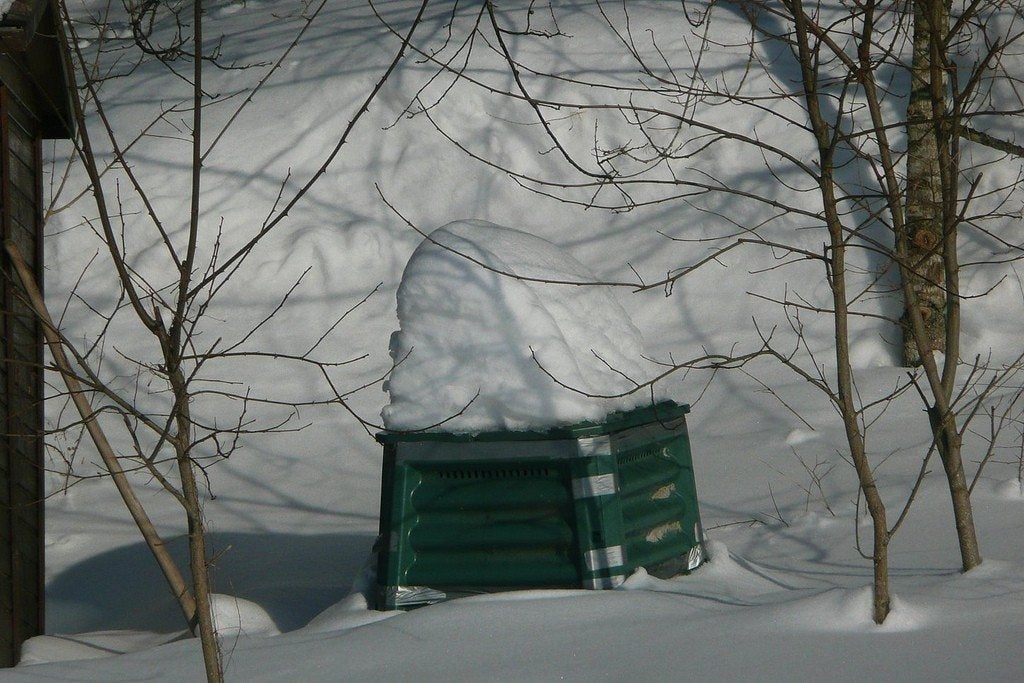Winter Composting: How To Keep Compost Over Winter


Sign up for the Gardening Know How newsletter today and receive a free copy of our e-book "How to Grow Delicious Tomatoes".
You are now subscribed
Your newsletter sign-up was successful
A healthy compost pile needs to be kept up all year long, even in the cold, dark days of winter. The decomposition process does slow some when composting during winter as the temperature drops, but bacteria, molds, and mites all survive and need energy to do their jobs. Winter composting requires a little preparation but is a manageable activity for most gardeners. Keep reading to learn more about compost in winter.
Preparation Tips for Composting During Winter
It is best to empty compost bins of all usable compost prior to the onset of winter. Use the compost around your garden, in your raised beds, or transfer to a dry container with a lid for use in the spring. Harvesting the compost before starting your winter compost heap will free up space for the new compost. Keeping the bin warm is important if you live in an area that has harsh winter temperatures and strong winds. Pile straw or hay bales around your bin or packed leaf bags. This will ensure that all of the beneficial critters in the compost will stay toasty all winter long.
Managing Compost Over Winter
The same concept for managing your winter compost heap applies like any other time, with layers of browns and greens. The best compost piles layer green kitchen scraps, fresh garden waste, etc. with browns that include straw, newspaper, and dead leaves. The only difference with winter composting is that you do not have to turn the pile as much. Frequent turning of the winter compost heap may result in heat escape, so it is best to keep turning to a minimum. Since the cold weather slows down decomposition, reducing the size of your compost pieces helps. Chop up food scraps before placing them in the winter compost bin and shred up leaves with a mower before adding them to the pile. Keep the pile moist but not soggy. When spring arrives, the pile may be very wet, especially if it has frozen over the winter. A good way to combat excess moisture is to add in some more browns to absorb the water. Winter Composting Tip - So that you don't have to make as many trips to the compost pile in the cold, keep a compost bucket with a tight-fitting lid in your kitchen or outside your back door. With proper layering, there should be very little odor and scraps will be partially decomposed by the time they reach the main compost pile.
Sign up for the Gardening Know How newsletter today and receive a free copy of our e-book "How to Grow Delicious Tomatoes".

Susan Patterson is a master gardener, author, and educator with more than 30 years of hands-on experience growing vegetables, herbs, and medicinal plants. She specializes in edible gardening, sustainable living, and the practical use of plants for health and wellness. A longtime instructor with the West Virginia Herb Association, Susan is passionate about teaching others how to grow, preserve, and use their own food. Through her books, articles, and her work with Earthenmamma, she empowers readers to cultivate thriving gardens – and healthier lives – wherever they live. She resides in Arizona.